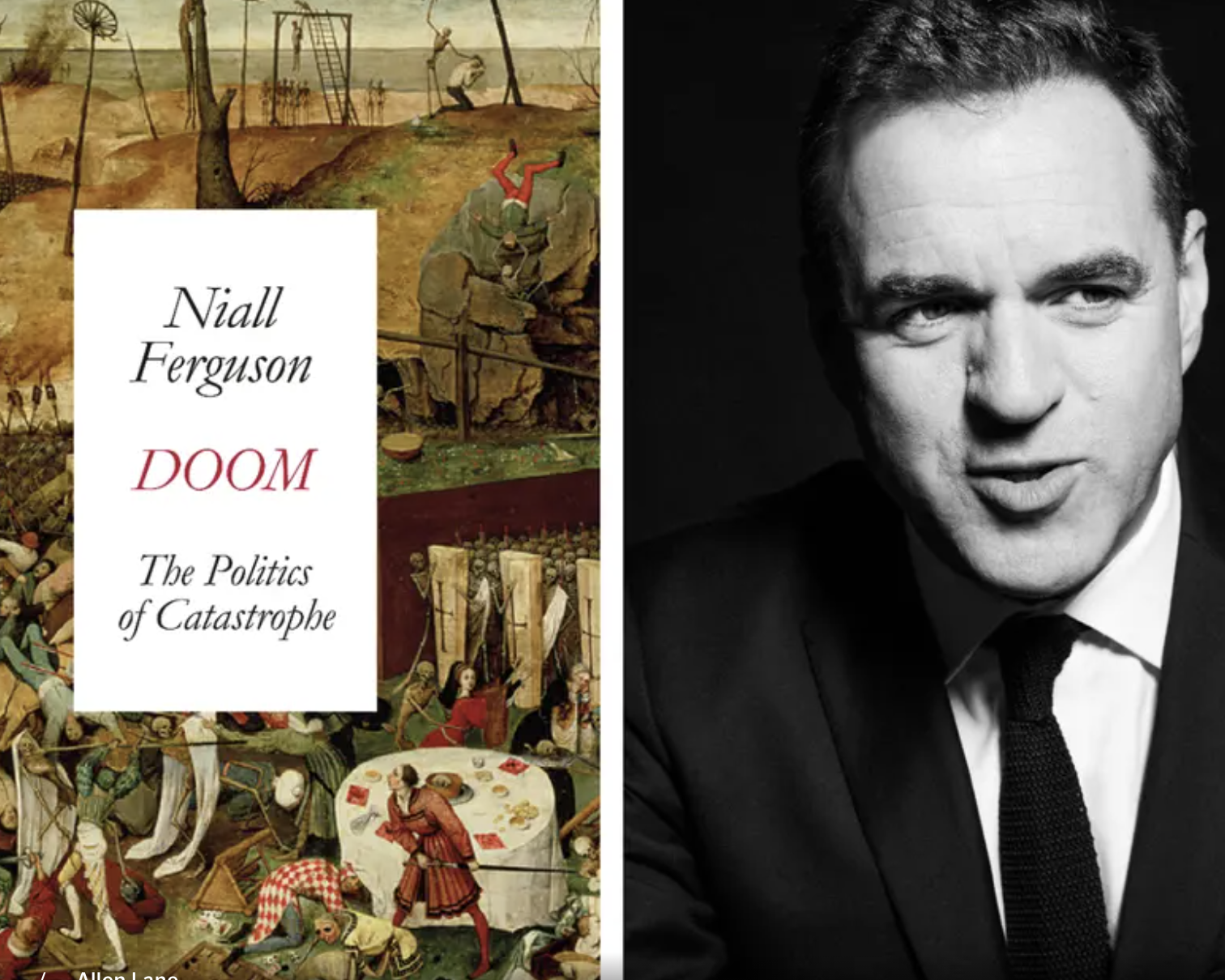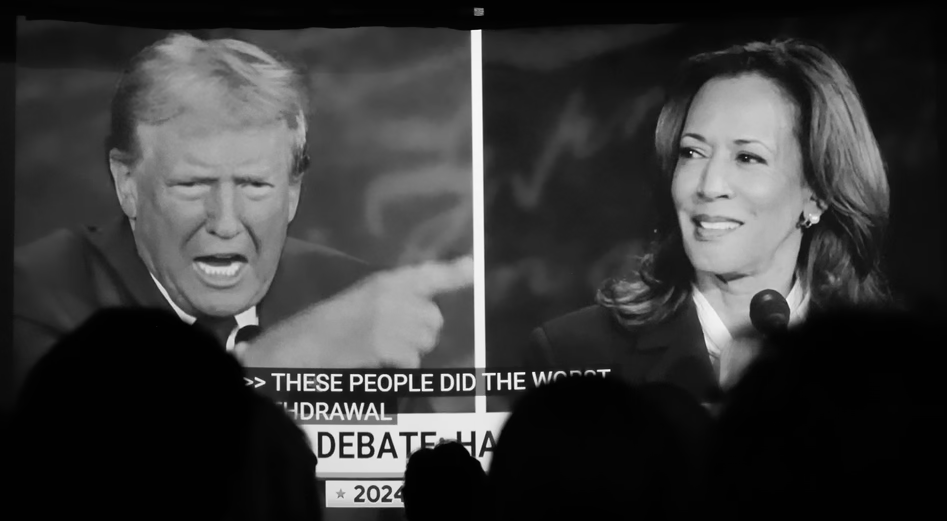
Doom: The Politics of Catastrophe by Niall Ferguson review
(Evening Standard) – From plagues and volcanic eruptions to the current Covid pandemic, mankind has always been faced with catastrophes.
Thought Leader: Niall Ferguson

The great English lexicographer Samuel Johnson said of the actor David Garrick that his demise “eclipsed the gaiety of nations and impoverished the public stock of harmless pleasure.” If the Argentine president Javier Milei were ultimately to fail in his bid to extricate his country from a century of economic underachievement, I would feel the same way. Happily, I don’t think he will.
Since he burst onto the Latin American political scene a few years ago, Milei has added immeasurably to both the gaiety of nations and the public stock of harmless pleasure. With his shaggy sideburns and loopy facial expressions, there is more than a hint of the Mad Hatter about him.
Yet there is a method to Milei’s madness. While the world fixates on Donald Trump’s populist cocktail of reciprocal tariffs and big, beautiful deficits, Milei is delivering a man-made miracle that should gladden the heart of every classical economist and quicken the pulse of all political libertarians.
Consider what Milei has achieved in just a year and a half.
When he was sworn in as president in December 2023, the Argentine economy was a seemingly incurable basket case. In 2023, its gross domestic product had shrunk by 1.6 percent, according to the International Monetary Fund (IMF). Perhaps more strikingly, per capita gross domestic product (GDP) on an inflation-adjusted basis was lower than it had been in 2007. Public finances were in disarray. The last time the government had run a surplus was in 2008. The IMF estimated total public debt at around 90 percent of GDP, but the important thing was how much of that debt—more than $40 billion—Argentina owed to the IMF, the culmination of no fewer than 22 programs.
The previous Peronist government’s reckless fiscal and monetary policies had created annualized inflation exceeding 200 percent. Indeed, wholesale price inflation in December 2023 was 54 percent month over month—technically hyperinflation, according to the widely accepted definition. To give you some idea, in 2023 the price of a latte roughly tripled from around 1,500 pesos to around 4,500. For the last three years, Cuervo Café—the coolest coffee shop in Buenos Aires—had to adjust its prices twice a month.
After less than 20 months, Milei has eliminated the fiscal deficit, cutting it from 5 percent of GDP to zero. He has reduced the number of government ministries from 18 to 8. (“Ministry of Tourism and Sports—out!” he declared in a campaign video, tearing its name off a whiteboard. “Ministry of Culture—out! Ministry of the Environment and Sustainable Development—out! Ministry of Women, Gender, and Diversity—out! Ministry of Public Works—out, even if you resist!”) With Executive Order 70, issued a few days after his inauguration, he deregulated key markets, including property rentals, commercial airlines, and road freight transport. Labor market reforms took longer but were enacted after a fight in Congress.
Milei has ended the artificial dual exchange-rate system and restored the central bank’s independence. He has terminated the so-called “intermediate organizations” such as Polo Obrero, Movimiento Teresa Rodríguez, and Barrios de Pie, which used to administer various social benefits and for years disrupted Argentine economic life with pickets and mass mobilizations. He has overhauled the import system, removing quotas, licenses, and nonessential certifications. And he has launched a long-term program of tax and regulatory reform.

The result of this shock therapy has been a stunning recovery. Milei has brought monthly inflation down from 13 percent to 2 percent. The economy is now growing at an annual rate of 7 percent. Investors no longer shun Argentine bonds and stocks—indeed, they were among the best investments you could have made over the past two years. After a brief upward jump, the poverty rate has fallen from 42 percent, when Milei was elected, to 31 percent. There is much work still to be done, but a new program from the IMF will provide $12 billion of new lending upfront and potentially another $2 billion, which should enable Milei to remove the remaining capital and exchange controls without reigniting inflation.
Most governments that cut their fiscal deficit by five percentage points of GDP pay a heavy political price for the resulting pain. Margaret Thatcher took nearly all her years in office to get the British public sector borrowing requirement down from 4.5 percent of GDP when she was elected in 1979 to −1.1 percent 10 years later.
When Elon Musk tried to imitate Milei earlier this year, his chainsaw was quite swiftly blunted by the forces of inertia.
But Milei and his party—La Libertad Avanza (LLA)—defy political gravity.
In May his spokesman was the LLA’s lead candidate in the Buenos Aires municipal election. LLA beat both Milei’s archfoes, the Peronists, and his allies, the center-right party of the former president, Mauricio Macri. There is good reason to hope LLA will go on to win September’s provincial elections and the midterm congressional election in October.
These are astonishing feats. And they have ramifications that go far beyond South America. Free-market economics and political libertarianism are sometimes dismissed as a fad of the “neoliberal” 1980s, long ago superseded by the new populisms of the left and the right. Not so. The world has never seen a government more radically libertarian than Milei’s. But the amazing thing is not that it is working economically—Adam Smith would say, “I told you so.” The true miracle is that Milei’s shock therapy is working politically.
To read the rest of this article, go to The Free Press.
WWSG exclusive thought leader Sir Niall Ferguson is one of the world’s foremost historians of economics, international relations, and global power. His incisive analysis illuminates the geopolitical forces and economic undercurrents shaping the 21st century. From great power competition to emerging security challenges, Ferguson offers unparalleled historical context and strategic insight — helping global leaders, policymakers, and business executives anticipate what lies ahead. To invite Sir Niall Ferguson to your next event, contact WWSG.
Doom: The Politics of Catastrophe by Niall Ferguson review
(Evening Standard) – From plagues and volcanic eruptions to the current Covid pandemic, mankind has always been faced with catastrophes.
Thought Leader: Niall Ferguson
Time to end secret data laboratories—starting with the CDC
The American people are waking up to the fact that too many public health leaders have not always been straight with them. Despite housing treasure…
Thought Leader: Marty Makary
David Frum: How Harris Roped a Dope
This piece is by WWSG exclusive thought leader, David Frum. Vice President Kamala Harris walked onto the ABC News debate stage with a mission: trigger…
Thought Leader: David Frum

